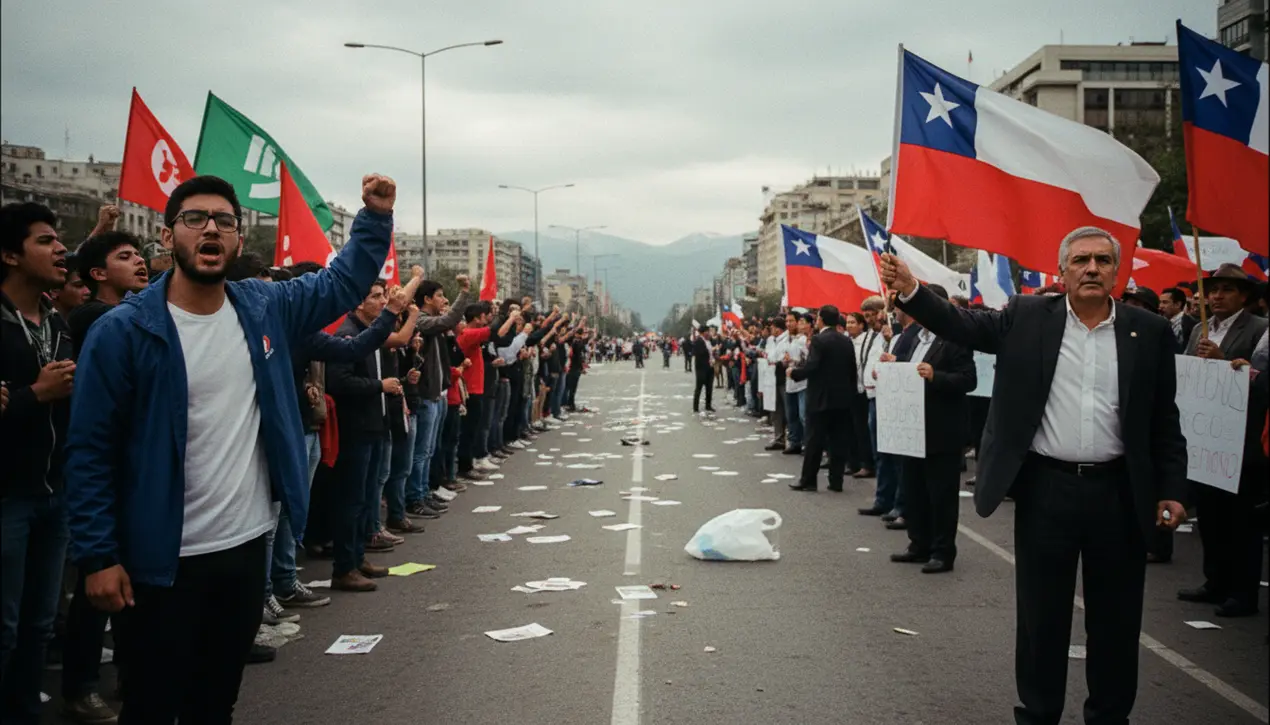
PoliticselectionsPresidential Elections
Chile's presidential run-off pits communist against far-right.
RO
Robert Hayes
2 hours ago7 min read1 comments
The political landscape of Chile has fractured, delivering a stark ideological choice to its electorate as the Communist Party's Gabriel Boric—a correction from the initial information, which inaccurately identified the candidate—prepares to face far-right stalwart José Antonio Kast in a December run-off that echoes the most profound political cleavages of the modern era. This second-round confrontation was precipitated after neither contender secured an outright majority in the initial ballot, a result that has sent shockwaves through a nation once considered a beacon of neoliberal stability in Latin America.Kast, the founder of the Republican Party and a figure often compared to Brazil's Jair Bolsonaro for his socially conservative and economically libertarian platform, emerged as the frontrunner, capitalizing on a potent campaign centered on law-and-order, anti-immigration sentiment, and a vehement rejection of the leftist governance embodied by the current administration. His opponent, Gabriel Boric, a former student movement leader who has shepherded a broad left-wing coalition that includes the Communist Party, represents a diametrically opposed vision: a transformative project to expand social rights, deepen environmental protections, and overhaul the nation's market-oriented constitution, a relic of the Augusto Pinochet dictatorship.The runoff is not merely a contest of personalities but a referendum on Chile's very soul, a nation still grappling with the legacy of its authoritarian past and the profound inequalities laid bare by the massive social protests of 2019. The historical parallel is inescapable; this is Chile's most polarized election since its return to democracy in 1990, threatening to unravel the carefully managed consensus that has governed the country for decades.Analysts point to the collapse of the traditional center-right and center-left coalitions, which have ceded ground to these more extreme poles, reflecting a global trend of political fragmentation and voter disillusionment with established institutions. The international community watches with bated breath; a Kast presidency would likely forge closer alliances with other right-wing populist governments in the region and signal a sharp turn away from multilateralism, while a Boric victory would position Chile as a progressive leader, potentially aligning it more closely with the likes of Mexico and Argentina.The outcome will have immediate and tangible consequences, from the future of a contentious mining industry and pension system to Chile's approach to climate change and its relationship with strategic partners like China and the United States. As the campaign enters its most critical phase, the battle for the votes of the defeated centrist candidates will be decisive, a political maneuvering that will test the resilience of Chilean democracy and determine whether the nation retreats into a fortress of conservative values or charges forward into an untested, expansive welfare state.
#Chile
#presidential election
#run-off
#Communist Party
#far-right
#José Antonio Kast
#Jeanette Jara
#editorial picks news
Stay Informed. Act Smarter.
Get weekly highlights, major headlines, and expert insights — then put your knowledge to work in our live prediction markets.
Related News
Comments
Loading comments...
© 2025 Outpoll Service LTD. All rights reserved.